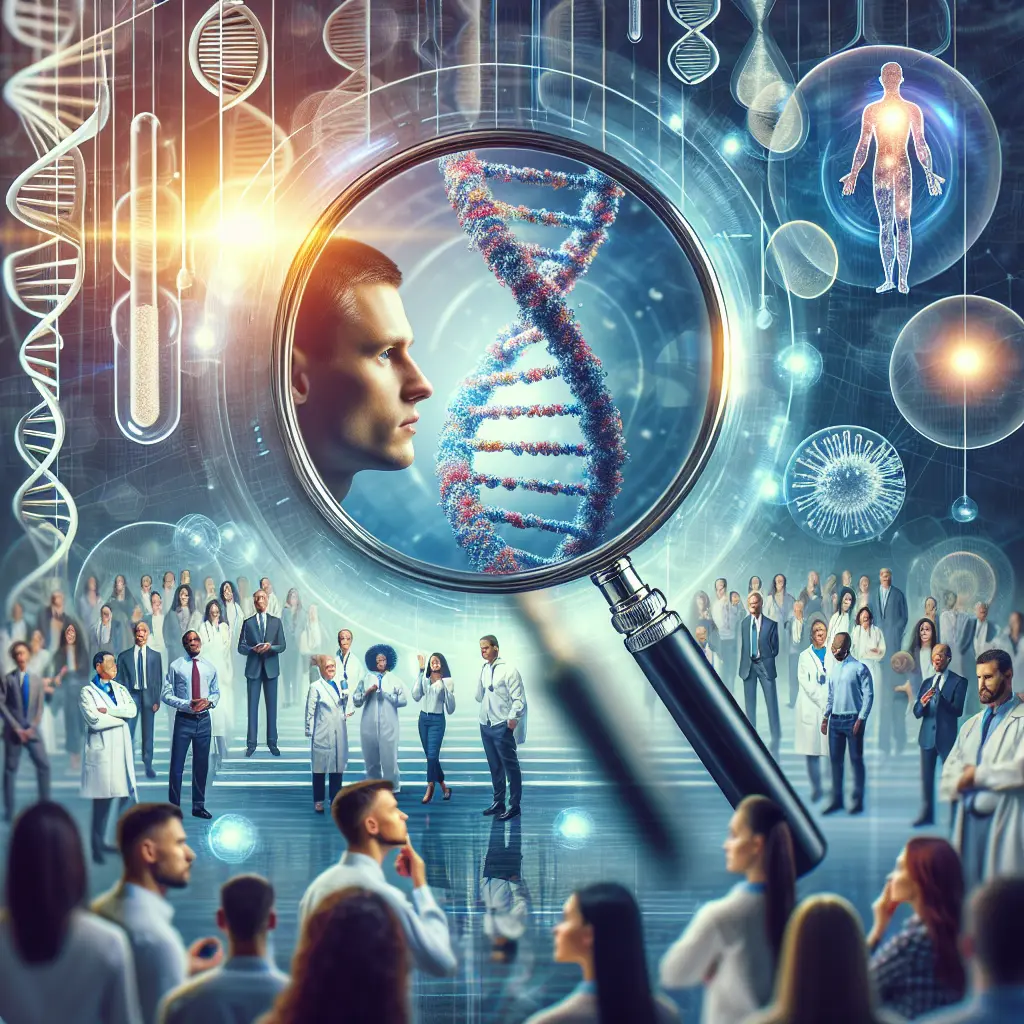
In the realm of modern science, few topics have sparked as much curiosity and debate as genetic testing. As individuals seek to understand their roots and identities through personal DNA analysis, the implications of such discoveries on self-perception and social interaction are profound. The journey through one’s genetic heritage is not just about uncovering where we come from but also about understanding who we are on a deeper, more intrinsic level.
Genetic Testing and Identity Discoveries
The advent of personal genetics services has revolutionized how we explore our family history. Genetic testing companies offer anyone the ability to trace their genetic ancestry with a simple DNA test. These ancestry DNA results provide a window into our pasts, linking us with forebears and relatives we never knew we had. But what happens when these results are unexpected or challenge our preconceived notions of our identities?
The impact of DNA testing on personal identity can be monumental. For many, genetic data confirms a long-held understanding of their family’s origins; for others, it can rewrite entire family narratives. This shift can affect not just an individual's view of themselves but also how they connect with their community and culture.
Case Studies in Genetic Heritage
Recent news highlights the broader social implications of identity based on genetic data. In Tulsa, an unfortunate event at ResourceOne, where an employee was subjected to racial harassment by being called derogatory names, emphasizes the ongoing struggles around racial identity and acceptance. The company recently settled a lawsuit for $47,500 with the Equal Employment Opportunity Commission (EEOC) over these allegations. Such incidents underscore the pervasive challenges related to identity and discrimination that still exist in our societies today.
Further information about this case can be explored through various legal and news platforms that cover EEOC settlements and workplace discrimination laws.
The Science of Understanding Genetics
Understanding genetics goes beyond identifying ethnic percentages in your DNA. It involves recognizing how these genetic links influence our health, traits, and even behaviors. Genetic testing services provide detailed reports that can predict potential health risks based on genetic markers. This aspect of personal genetics can lead not only to heightened awareness about one’s health prospects but also to proactive lifestyle changes and informed medical decisions.
However, the interpretation of DNA test outcomes requires a nuanced understanding. Genetic information is complex, and its implications on personal identity are layered. There is an ever-present risk of misinterpretation or the psychological impact of discovering unexpected or undesirable information about one's genetic makeup.
Ethical Considerations in Genetic Identity Exploration
As we delve deeper into the genetic threads that compose our identity, ethical questions surface. How much should we rely on genetic data to define us? What are the implications of having such information available, not just for individuals but for society at large?
These concerns are particularly pertinent when considering the potential for genetic data to be misused. Issues such as genetic privacy, data security, and the potential for genetic discrimination are critical topics that need addressing as more people undergo genetic identity exploration.
Personal Stories from Genetic Ancestry Discoveries
Many individuals who undergo family history DNA tests are moved by the stories they uncover. Some find relatives they were previously unaware of, others discover ancestral connections to historical events or figures, and some people even find that their cultural heritage is different from what they grew up believing.
These personal stories highlight the transformative power of genetic testing in understanding personal identity. They also demonstrate how such discoveries can foster a greater connection to history and a deeper understanding of one's place in the world.
Looking Forward: The Future of Personal DNA Analysis
As technology advances, the scope of what we can discover through personal DNA analysis continues to expand. Future developments may allow us even greater insights into our ancestry, health predispositions, and even hidden talents or traits. The key will be ensuring that this powerful tool is used ethically and responsibly, with a focus on enhancing understanding and empathy among diverse groups.
Conclusion
The journey into genetic testing and the exploration of one’s genetic heritage is more than a quest for knowledge. It's a deeply personal voyage that can affect individuals' sense of identity, belonging, and history. As we continue to unravel the complex tapestry of human genetics, it is crucial to approach these discoveries with sensitivity and awareness of their broader social implications.
From understanding our ancestry to confronting issues of identity in the workplace, as seen in the recent lawsuit settlement by ResourceOne, the dialogue around personal genetics is ever-evolving. It challenges us to reconsider notions of identity, heritage, and community in the light of new information.
As we forge ahead, let us do so with open minds and respectful hearts, ready to embrace whatever truths our DNA might reveal.
With curiosity and compassion,
Avery Simmons